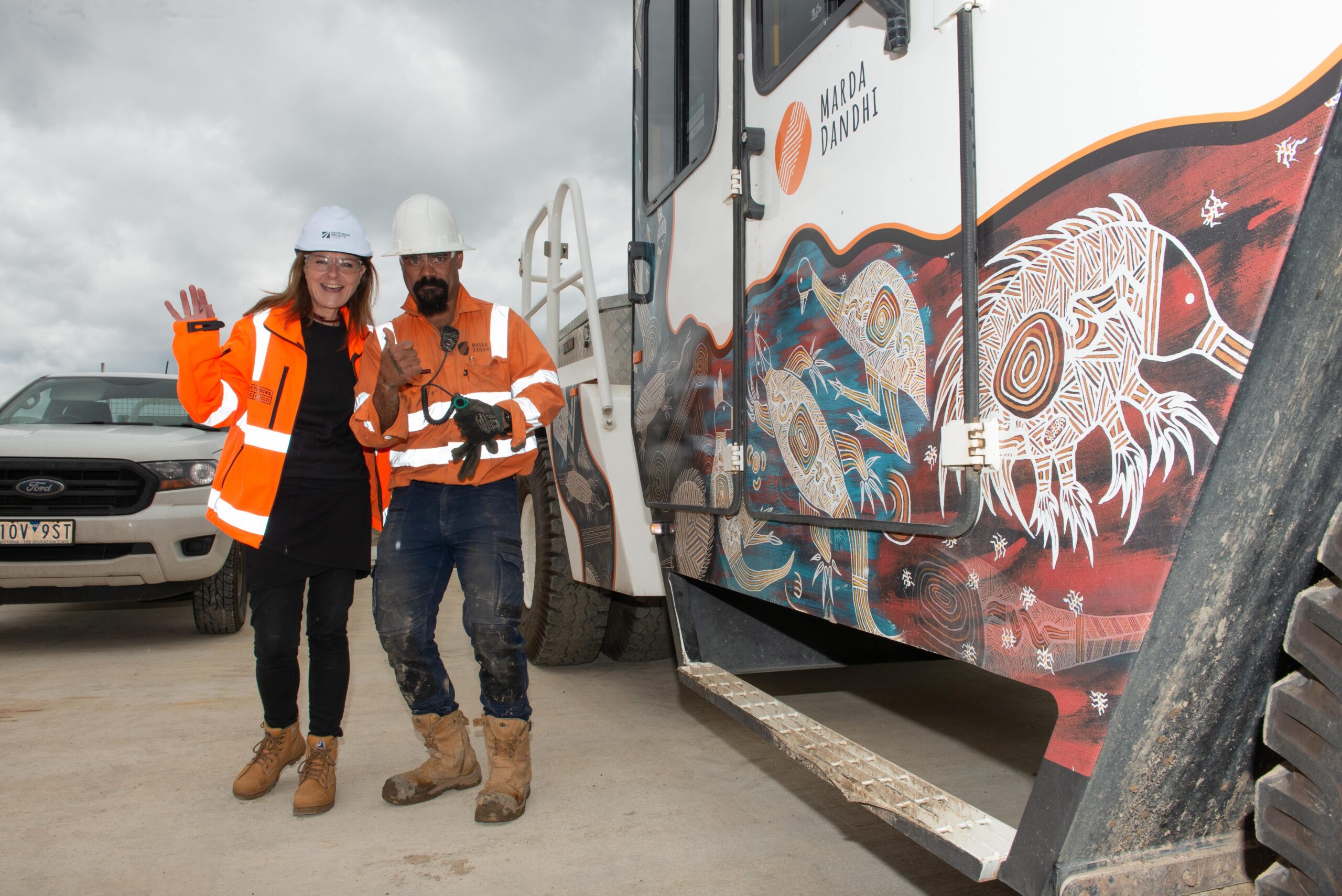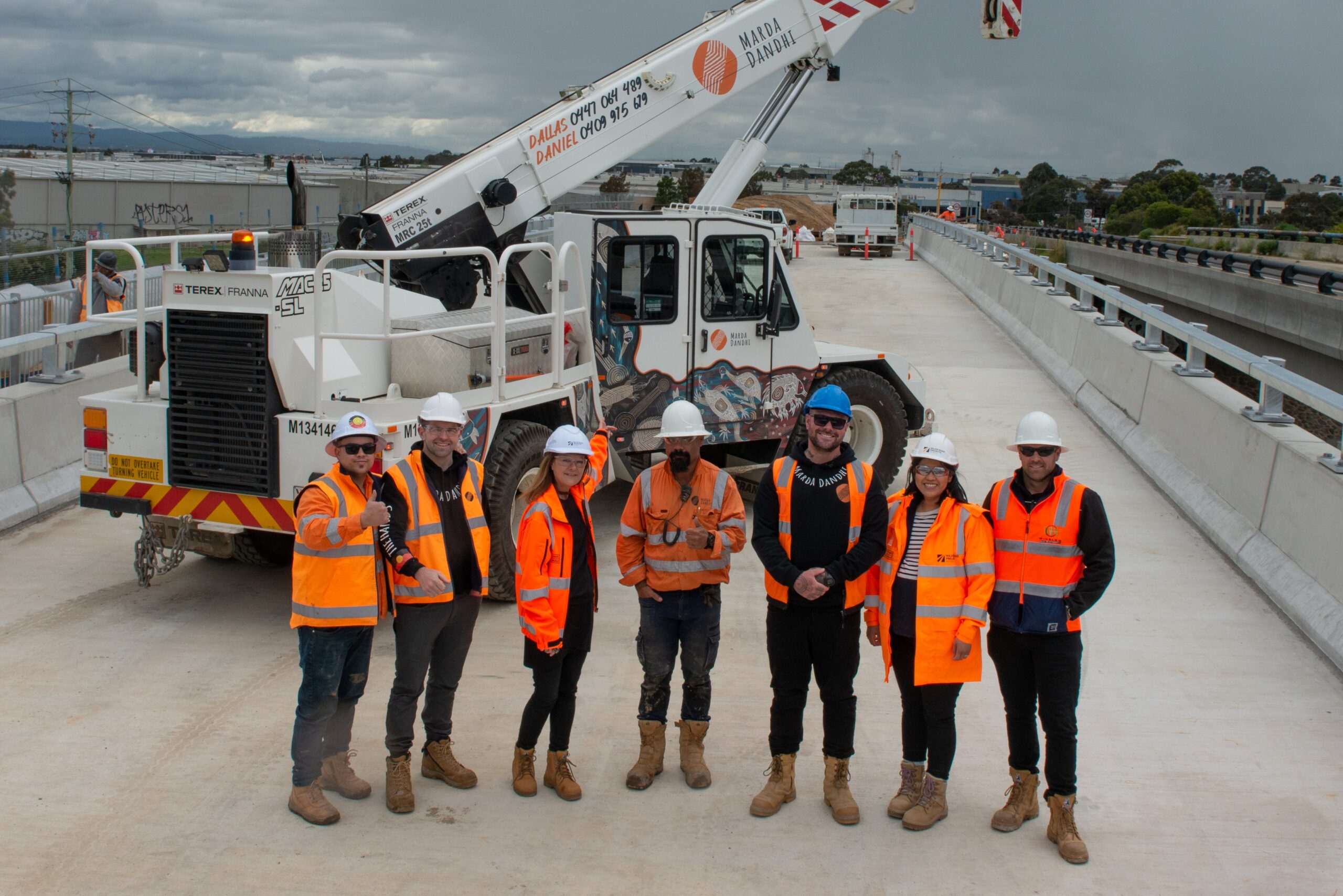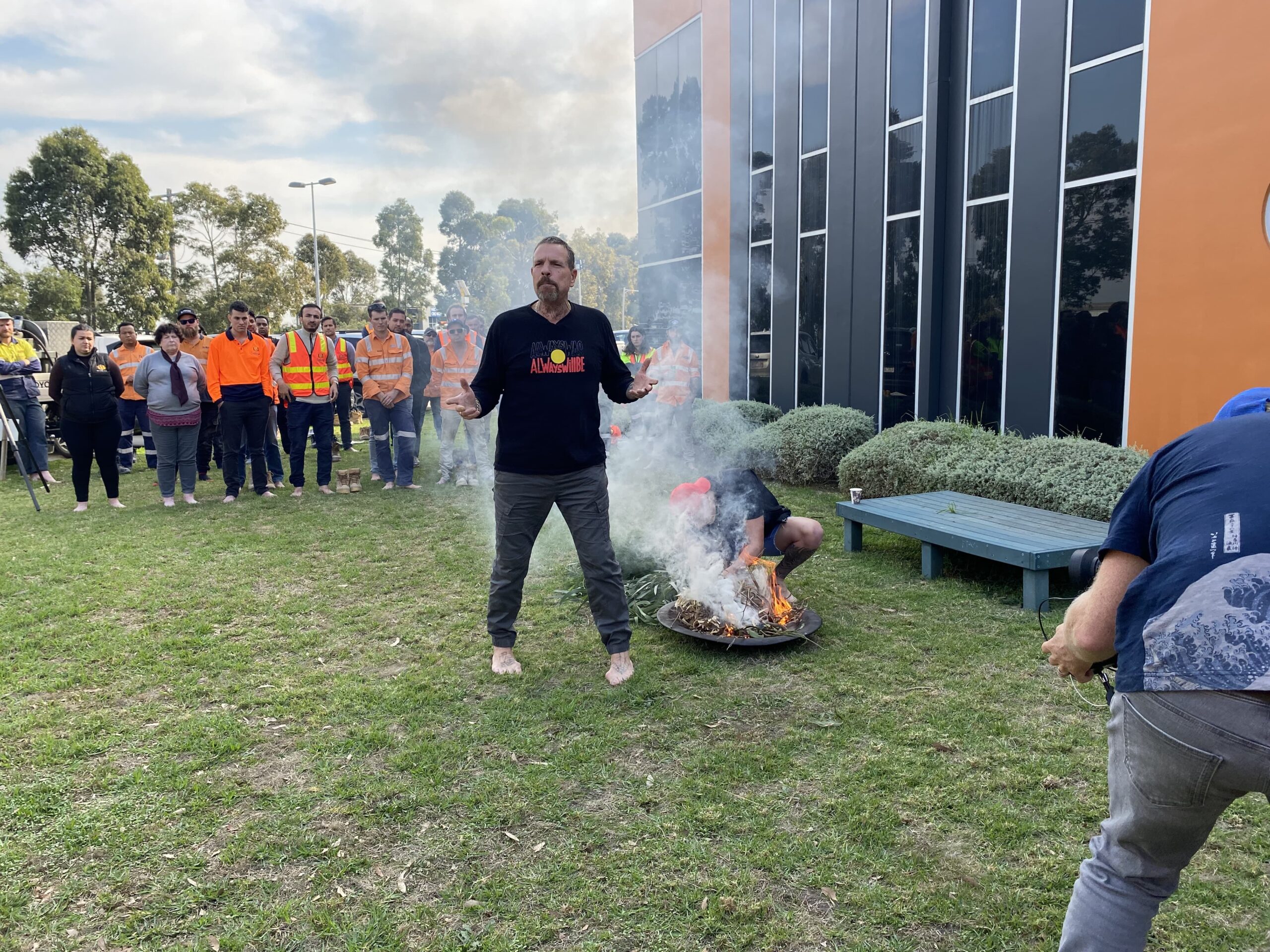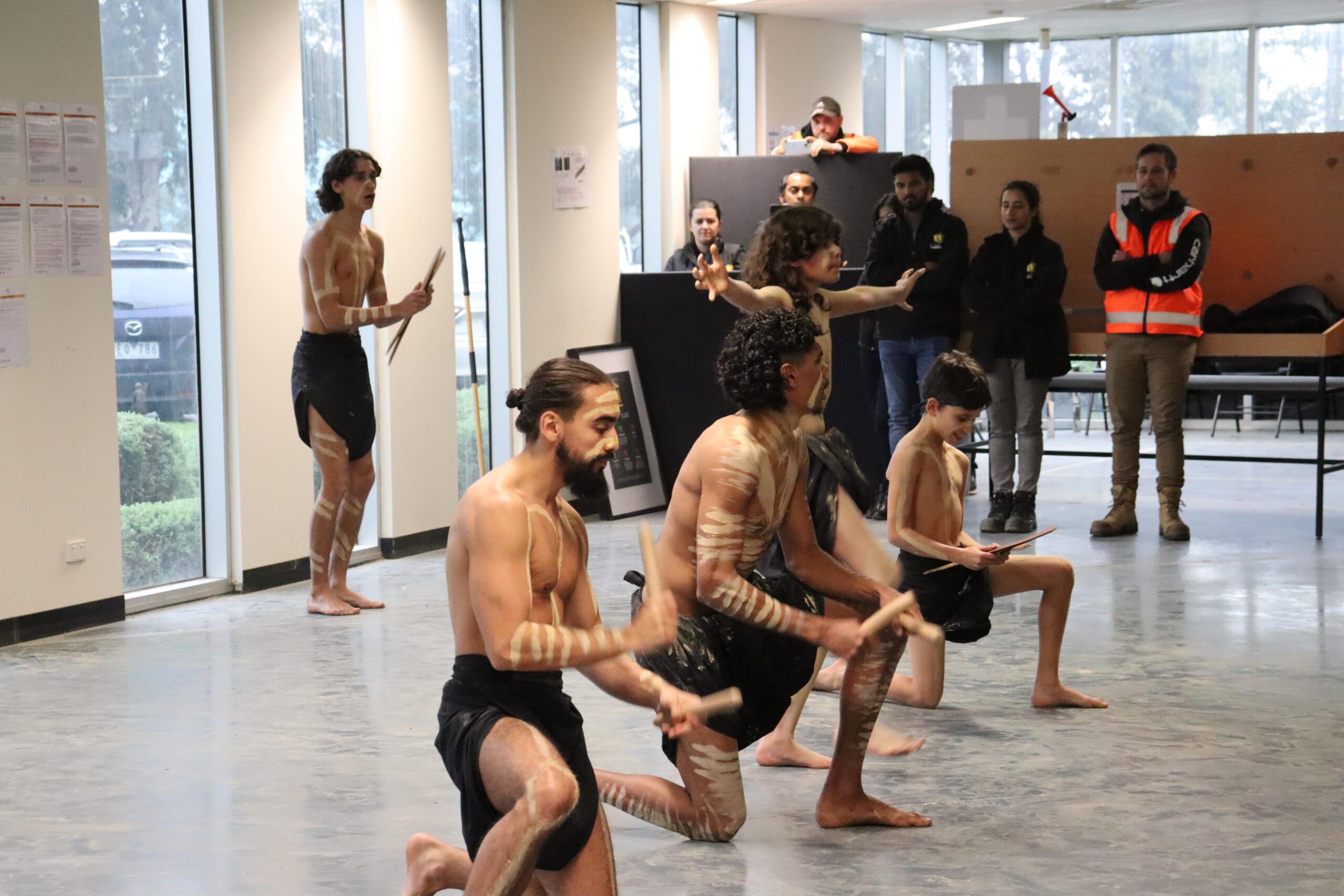Lathams Road Upgrade Project – Social Outcomes
Describe WHAT you have done and HOW you have done it.
Winslow Infrastructure is committed to supporting the local community in an ethical, responsible, and sustainable manner, and aims to be recognised as an organisation that makes a positive contribution to the community in which it operates. Winslow Infrastructure recognises our social responsibilities as being fundamental to our long-term sustainability and growth. We are recognised leaders in social procurement in the civil construction industry.
The social procurement strategy for the Lathams Road Upgrade (Project) sought to actively engage Indigenous businesses and achieve strong sustainable social value outcomes in partnership with the community, our clients, and stakeholders in an ethical and responsible manner. Winslow Infrastructure recognises that in order to grow sustainably as an organisation, building relationships with the community including social enterprises, disability enterprises and Indigenous businesses is essential.
During the construction of the $146m Project, Winslow Infrastructure adopted strong non-price criteria during the RFQ process that placed a greater emphasis on social outcomes, increasing the weighting of community benefits during the tender process. This procurement approach considered the broader social benefits beyond the scope of the Project and was enacted through the Project’s Social Procurement Plan, as well as Winslow Infrastructure’s Social Procurement Policy.
This social procurement process resulted in strong partnerships being formed between Winslow and various Indigenous Labour Hire and workforce companies, including Marda Dandhi, Indigenous Civil Services, and Alpha Facilities Group. As a result, the Project significantly exceeded Indigenous Employment targets and led to the increased development and upskilling of local Indigenous peoples. This improved their livelihoods through personal development, training and the provision of long-term, sustainable employment.
Original targets for Indigenous employment were set, and these were significantly exceeded. The Project’s total spend on Indigenous businesses exceeded 3.9% of the total project value as of June 2023, representing a significant proportion of the total contract sum. More than 25,000 hours were worked by Indigenous personnel.
Managing Director of Marda Dandhi, Danny Miller stated, “This partnership has consistently provided sustainable employment, and led to significant personal growth, along with collective growth, especially nearing the end of project delivery at Lathams Road.”
What were the OUTCOMES and how were those outcomes shared?
Winslow Infrastructure recognises that Indigenous Australians are under-represented in the construction industry, and through strong social procurement governance and objectives achieved excellent indigenous employment outcomes on the Project including:
• Generating significant Aboriginal employment outcomes and exceeded the Indigenous employment target. In excess of 25,000 project hours worked by Indigenous employees and contractors on the Lathams Road Upgrade Project.
• Supporting Aboriginal-owned businesses by spending a significant percentage of the total contract value with those businesses.
• Providing young local people with paid and meaningful employment in a supported environment.
• Contributing to the development and upskilling of Indigenous people - improving outcomes through traineeships and the provision of long-term, sustainable employment, assisting Indigenous youth to stay engaged in training and employment.
• The project employed a holistic approach to Indigenous employment, appointing three Indigenous supervisors and foremen. This established real and meaningful employment outcomes for those individuals on-site, allowing them to impart their knowledge to other indigenous members of the workforce and allow them to gain confidence in a supportive and inclusive environment.
• Through the enhanced presence of Indigenous personnel on the Project, cultural learning sessions with the wider project team were a regular occurrence. This has led to a greater cultural awareness in the workforce who were fortunate enough to participate in cultural celebrations and ceremonies.
Describe WHO benefited from your initiative, innovation, or approach?
The 21 individuals employed in various roles on the Project and their families are obviously the biggest beneficiaries from the Project’s partnerships with Indigenous labour hire companies, experiencing sustained employment in a supportive environment which has led to significant personal growth for all involved. This has given those personnel financial security, increased social mobility, and access to a higher standard of living.
The Indigenous labour hire companies Winslow Infrastructure partnered with have also benefited, enabling them to expand their operations and offer employment to a greater number of Indigenous individuals, improving the job prospects and opportunities for them in the future.
The Winslow Infrastructure workforce as a whole is also a beneficiary, increasing cultural awareness through a more diverse workplace. Workplace diversity and inclusion ensures a safe and welcoming and safe environment, resulting in businesses experiencing greater staff retention, increased innovation, and more positive co-worker relationships.
What LEGACY and UN SDG CONTRIBUTION was achieved?
Sustainable Development Goal 8 - Promote sustained, inclusive and sustainable economic growth, full and productive employment and decent work for all.
In 2019, less than half (49%) of Aboriginal and Torres Strait Islander people aged between 15-64 were employed. This represents a 27-percentage point gap in employment rates between Indigenous Australians and non-Indigenous Australians (76%). Winslow Infrastructure was able to actively contribute to providing full employment to 21 Indigenous Australians on the Project, promoting sustained and productive employment to Indigenous members of the community in an inclusive work environment.
Sustainable Development Goal 10 - Reduce inequality within and among countries.
The inequalities that exist for Indigenous Australians are widely recognised, and they experience socio-economic disadvantage on all major indicators. The National Imprisonment rate for Aboriginal and Torres Strait Islander people is 15 times higher than that of non-Indigenous Australians.
The gap that exists between Indigenous and non-Indigenous Australians also includes poorer health, lower levels of education and employment, and shorter life expectancies. Through Winslow’s Infrastructure’s partnerships formed on the Project, there has been a notable effort to reduce inequality by means of providing employment opportunities to those who otherwise may not have received it.
https://www.youtube.com/watch?v=jApqKkNm_fY




